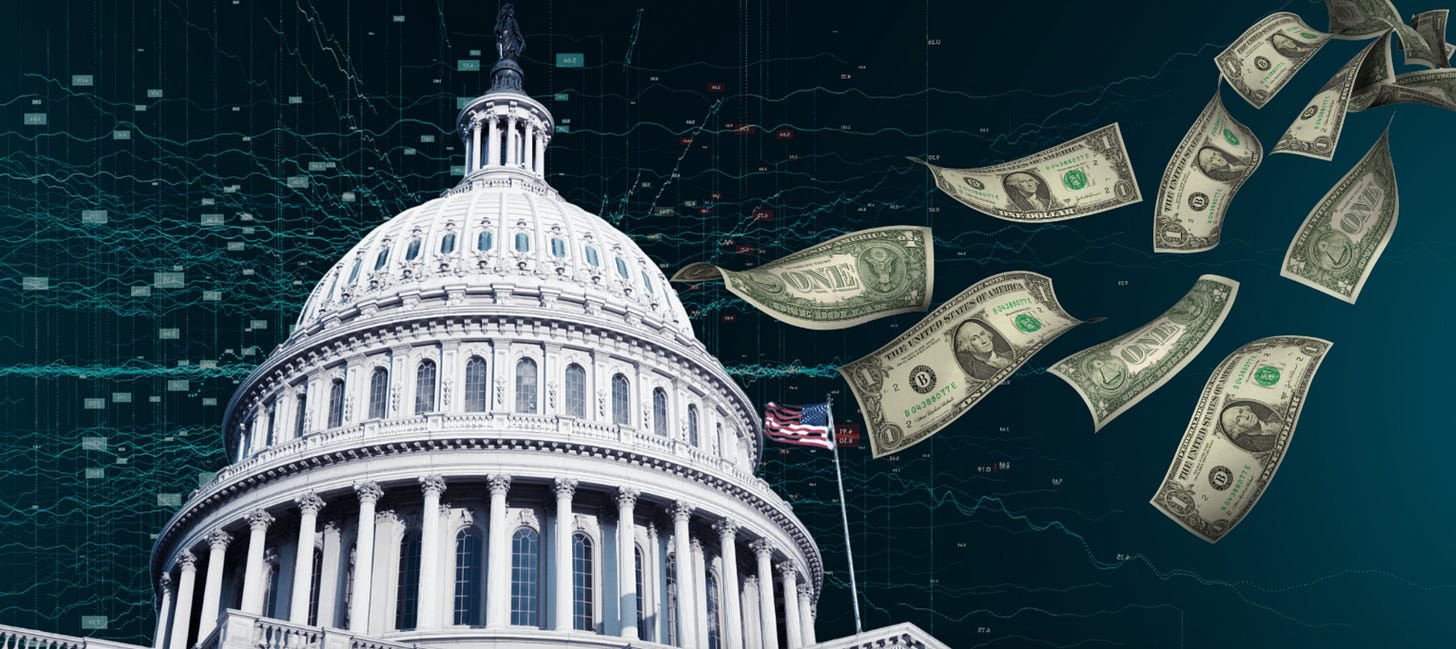- Yaro on AI and Tech Trends
- Posts
- 🔍Understanding the Consequences of DOGE's Data Access Policies.
🔍Understanding the Consequences of DOGE's Data Access Policies.
Plus: Meta Ends Fact-Checking.
Get in Front of 50k Tech Leaders: Grow With Us
Happy Monday Team,
Meta has officially dropped its fact-checking efforts. That means more misinformation and fewer guardrails—don’t trust everything on your feed.
Meanwhile, DOGE now has broader access to your data. This opens the door for (Musk-owned) companies to monetize user behavior even more aggressively. And in the latest twist, AI agents are becoming smart enough to potentially automate cybercrime. So, yeah, nothing to worry about. Let’s go…
Meta Ends Fact-Checking.
🧰 AI Tools
Understanding the Consequences of DOGE's Data Access Policies.
📰 News and Trends.
The Rise of AI Agents in Cybercrime.
Meta Ends Fact-Checking.

Meta is officially ending all U.S. fact-checking on its platforms starting Monday. Instead, it's shifting to a "Community Notes" system modeled after Elon Musk's X, leaving fact-checking up to users with no penalties for spreading false information.
The move comes after Zuckerberg donated $1M to Trump's inauguration and loosened Meta’s moderation rules — even allowing hate speech targeting LGBTQ+ people under the guise of "political discourse."
Critics warn this opens the floodgates for misinformation ahead of the 2026 elections — and it's already happening.
You’ve heard the hype. It’s time for results.
After two years of siloed experiments, proofs of concept that fail to scale, and disappointing ROI, most enterprises are stuck. AI isn't transforming their organizations — it’s adding complexity, friction, and frustration.
But Writer customers are seeing positive impact across their companies. Our end-to-end approach is delivering adoption and ROI at scale. Now, we’re applying that same platform and technology to build agentic AI that actually works for every enterprise.
This isn’t just another hype train that overpromises and underdelivers. It’s the AI you’ve been waiting for — and it’s going to change the way enterprises operate. Be among the first to see end-to-end agentic AI in action. Join us for a live product release on April 10 at 2pm ET (11am PT).
Can't make it live? No worries — register anyway and we'll send you the recording!
📰 AI News and Trends
An AI system made by Google’s DeepMind AI lab has proven surprisingly adept at mastering the game of Minecraft without being taught the rules.
OpenAI mulls taking over Jony Ive's AI startup for $500 million.
Meta introduces Llama 4 with two new AI models available now, and two more on the way.
OpenAI says it’ll release o3 after all, but it delays GPT-5. And the models ‘memorized’ copyrighted content, which may lead to lawsuits.
DeepSeek and Tsinghua Developing Self-Improving AI Models.
🌐 Other Tech news
Trump’s TikTok Plan Upended by Chinese Objections Over Tariffs delaying it over 75 days.
This Brain-Computer Interface Is Now a Two-Way Street, it returns the sense of touch to paralyzed limbs.
Vimeo Wants to Let Every Creator Launch Their Own Netflix.
Musk v. OpenAI Trial Delayed to March 2026
SF Mayor Lurie to tech CEOs: ‘How can we get you back?
Understanding the Consequences of DOGE's Data Access Policies.

The Department of Government Efficiency (DOGE) has rapidly secured access to a vast array of sensitive federal data, raising significant concerns about privacy, security, and potential misuse. This access not only encompasses taxpayer information but also extends to the personal details of federal employees and beneficiaries.
Extensive Data Access Across Federal Agencies
DOGE's reach into federal data systems is extensive:
Internal Revenue Service (IRS): DOGE plans to host a hackathon aimed at developing a "mega API" to centralize access to taxpayer data, including names, addresses, Social Security numbers, tax returns, and employment information.
Department of the Treasury: DOGE obtained full access to the Treasury's payment systems, which handle $6 trillion in annual disbursements, encompassing Social Security and government salaries.
Office of Personnel Management (OPM): DOGE staffers were granted access to the Federal Personnel and Payroll System, processing salaries for 276,000 federal employees.
Social Security Administration (SSA): DOGE accessed databases containing personal information of Social Security number holders.
Department of Education: A federal judge temporarily blocked DOGE from accessing private data at this agency, highlighting legal challenges to its data acquisition efforts.
Potential Utilization of Data
The aggregation of such extensive data presents multiple avenues for utilization:
Enhancing AI Models: Detailed personal and financial data can significantly improve AI algorithms, particularly in predictive analytics and personalized services. Musk’s xAI can benefit tremendously from access to this data as AI models have been desperately searching for proprietary and government data.
Business Synergies: Access to comprehensive datasets can inform strategic decisions across Musk's ventures, offering competitive advantages in various sectors.
Data Monetization: Structured and anonymized data sets have substantial market value, opening opportunities for partnerships or sales to third parties.
Privacy and Security Concerns
The consolidation of sensitive information under DOGE's purview has elicited strong reactions:
Legal Challenges: Federal employee unions have sued the Treasury Department, alleging unlawful data access granted to DOGE.
Judicial Interventions: Courts have intervened to block DOGE's access to certain data, reflecting concerns over privacy violations.
Expert Warnings: Privacy advocates caution that centralizing sensitive data without adequate safeguards poses significant risks to individual privacy and governmental transparency.
While DOGE's stated aim is to enhance governmental efficiency, the breadth of data access and potential for cross-utilization across Musk's enterprises underscore the need for stringent oversight and robust privacy protections, but do we think this is going to happen? No, and it’s too late. all that data is probably already on their servers.
🧰 AI Tools
Download our list of 1000+ Tools free
The Rise of AI Agents in Cybercrime.

AI agents—capable of planning and executing complex tasks—pose a growing cybersecurity threat by potentially automating large-scale cyberattacks. Researchers have demonstrated that these agents can identify and exploit system vulnerabilities, raising concerns about their real-world deployment by cyber criminals.
To detect and study such threats, organizations like Palisade Research have developed systems like the LLM Agent Honeypot, which has already identified AI-driven hacking attempts. Experts warn that the scalability and adaptability of AI agents could lead to a surge in cyberattacks, emphasizing the need for proactive defenses.


Reply